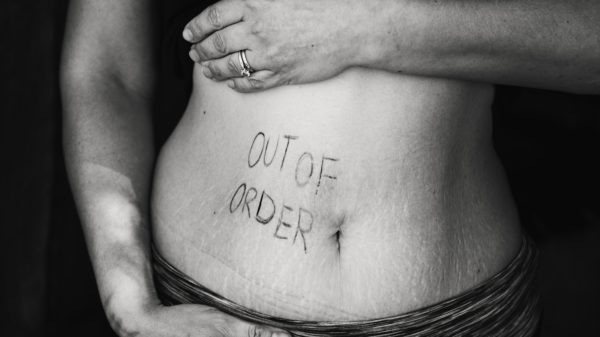1. Introduction
This article on Inflammatory Bowel Diseases aims to help the smaller family members.
Please note that I am neither a doctor nor a vet and only write about my own experiences.
I can’t take any responsibility for the health of your pet!
But I try to help It just like I helped myself.
The inflammatory bowel diseases behave very similar in cats and humans.
Just like humans cats, unfortunately, can get Inflammatory bowel diseases, short-form IBDs.
I suffer from ulcerative colitis myself.
Ulcerative colitis together with Crohn’s disease are the most common IBDs in humans.
I hope that the experiences I had to go through, not only help other people but also your favorite pet.
Fortunately my cat Elton doesn’t have to suffer from this horrible disease.
He was born in my home and since then I raised him.
I can imagine how much you suffer together with your beloved pet, that’s why I hope that my personal experience can help both of you!


2. Structure
1. Introduction
2. Structure
3. What are inflammatory bowel diseases (IBDs)?
4. Symptoms in cats
5. What causes IBDs in cats?
6. How are IBDs in cats diagnosed?
7. How are IBDs in cats treated?
8. My personal advice
3. What are inflammatory bowel diseases (IBDs)?
Any inflammation within the digestive tract can interfere with or even prevent the decomposition of food and nutrient uptake.
Inflammation is your body’s way of healing and protecting against infections or injuries.
In the case of IBDs, the body inflames because of unknown reasons.
The term Inflammatory bowel disease (IBD) describes predominantly two chronic inflammatory conditions of the colon and small intestine.
In men, they are called Ulcerative colitis and Crohn’s disease.
While Crohn’s disease can occur throughout the whole digestive tract, ie from the mouth to the anus, Ulcerative colitis is restricted to the colon.
The illness occurs in waves.
phases without symptoms alternate with phases of strong symptoms.
The course of the disease is unpredictable.
I was diagnosed with ulcerative colitis 6 years ago. Especially in the first year, I had very strong symptoms.
That’s why this topic is really personal to me!
4. Symptoms in cats
- Persistent diarrhea
- Rectal bleeding/bloody stools
- Stomach pain, bloating and cramping
- Weight loss
- Anemia
- Fatigue
- Fever
- Food refusal
- Repeated vomiting
- The cat look stressed and restless
- loud stomach sounds
- some cats develop an extreme appetite as a direct result of lack of nutrient intake
- Depression
Other health problems that can be associated with IBDs:
- Eye inflammation
- Joint inflammation
- In kittens, there may be a delayed growth
I suggest that if you think your cat be concerned with IBDs you should alert your vet to this possibility as this disease is not that common.
5. What causes IBDs in cats?
The causes of the IBDs are mostly unclear and based on guesswork.
There is no study that can clearly prove the causes.
However, there are some studies and observations that indicate possible causes:
Genetics:
A genetic link is largely ruled out.
Autoimmune disease:
An autoimmune reaction of the body is also considered.
Usually, the immune system responds to the infectious agent by defending the body and fighting off the invaders.
As the body fights the intruders, it causes infections, which disappear as soon as all foreign bodies have disappeared.
This is a normal and healthy reaction of the body.
It is suspected that the body, even without an existing infection, causes an autoimmune reaction that falsely attacks its own cells
However, with this theory, the researchers argue, therefore, this thesis should be considered with caution
Diet:
The diet is at least directly linked to the course of IBDs.
Parasitic or bacterial infections
For me personally, I made the experience that my illness was only and directly linked to my food intake!
And only a complete change in my diet could help to heal my intestine.
Everything else is just a treatment against the symptoms.
6. How are IBDs in cats diagnosed?
The exact diagnosis can be difficult.
As with humans, there are a few steps to diagnose IBDs in cats:
Fecal examinations:
A fecal examination is necessary to exclude an infestation by worms or other parasites.
Blood tests:
Blood tests are made to test for inflammatory levels.
Measurement of folate and vitamin B12 levels.
Endoscopy:
An endoscopy (looking inside) is used in medicine to look inside the body.
Thus, intestinal polyps or intestinal tumors can be excluded
An exploratory laparotomy:
Is the name given to open abdominal surgery, to examine tissues for analysis.
Through a tissue biopsy:
In which tissue samples can be taken to determine what type of IBD it is.
This is a surgical procedure performed under anesthesia.
7. How are IBDs in cats treated?
There are a lot of different approaches to treat IBDs.
Chronic inflammatory diseases, are not medically curable.
however, under certain circumstances, the symptoms can almost completely be eliminated.
Medical therapies:
Medications can be used depending on the intensity of the symptoms.
In moderate to severe cases IBDs are mostly treated with Anti-inflammatory drugs.
For a short time, these work very well and provide rapid symptom relief, unfortunately, these drugs have strong side effects and can cause great damage over a longer period of time.
Good bacteria can be given as a supplement especially after antibiotic treatment because these so-called pro-biotics are an essential part of a healthy stomach intestinal flora.
Always ask your veterinarian before giving your dog any supplements or medication.
Deworming:
A complete deworming cure may be useful as a fecal examination is not always 100% accurate.
Supplementation:
Various supplements such as vitamins and minerals can be useful because of the persistence of diarrhea and vomiting to close a lack of supply.
Diet:
A special diet can in many cases result in a tremendous improvement in symptoms.
Any treats should be avoided.
8. My personal advice
As I am suffering from this disease myself, I would like to share my personal experience with you.
I know that I’m not a cat, however, this disease is very similar in cats and humans and I think the health of your cat is worth a try.
Unfortunately, I can not guarantee anything but I have the experience that this disease is mainly related to the diet.
I am able to live almost symptom-free today, thanks to a nutritional and lifestyle change.
Completely banishing carbohydrates had by far the biggest positive effect on my health!
In addition, I would completely dispense with processed food.
I suggest you feed your cat only with one sort of red meat like beef or lamb for a few weeks.
No snacks and nothing else.
It has to be a strict diet of meat,
Another topic that I could not find yet in the treatment of cats is fasting.
It is absolutely frightening what results I could achieve with fasting.
I use fasting regularly to fight symptoms.
A week fasting shames any medical treatment for me!
Fasting gives the body the ability to heal itself and gives the digestive tract a break.
what if you think about it is just a logical answer to this disease.
Moreover, it is a distinctly natural way of nutrition.
Your cat would not get a complete meal every day in the wild.
On the contrary, the digestive tract of a cat is made to take up large quantities of food at once and then fast over days.
However, you should be careful and you should work very closely with your veterinarian in this matter because your cat could already suffer from a shortage or underweight caused by diarrhea or vomiting.
In this case, you should first bring your cat back to a healthy weight.
If you have any questions, notes or personal experiences that you have missed in this article please leave a comment or write me an email via my blog health-bells.com
If you wish to learn more about IBDs click here to see my in-depth guide to IBDs or my personal history with this disease:
How I Won Against My Inflammatory Bowel Disease
Everything You Need To Know About Inflammatory Bowel Diseases
If you liked this article or you have the feeling it could help someone please consider sharing.
Thank you!



